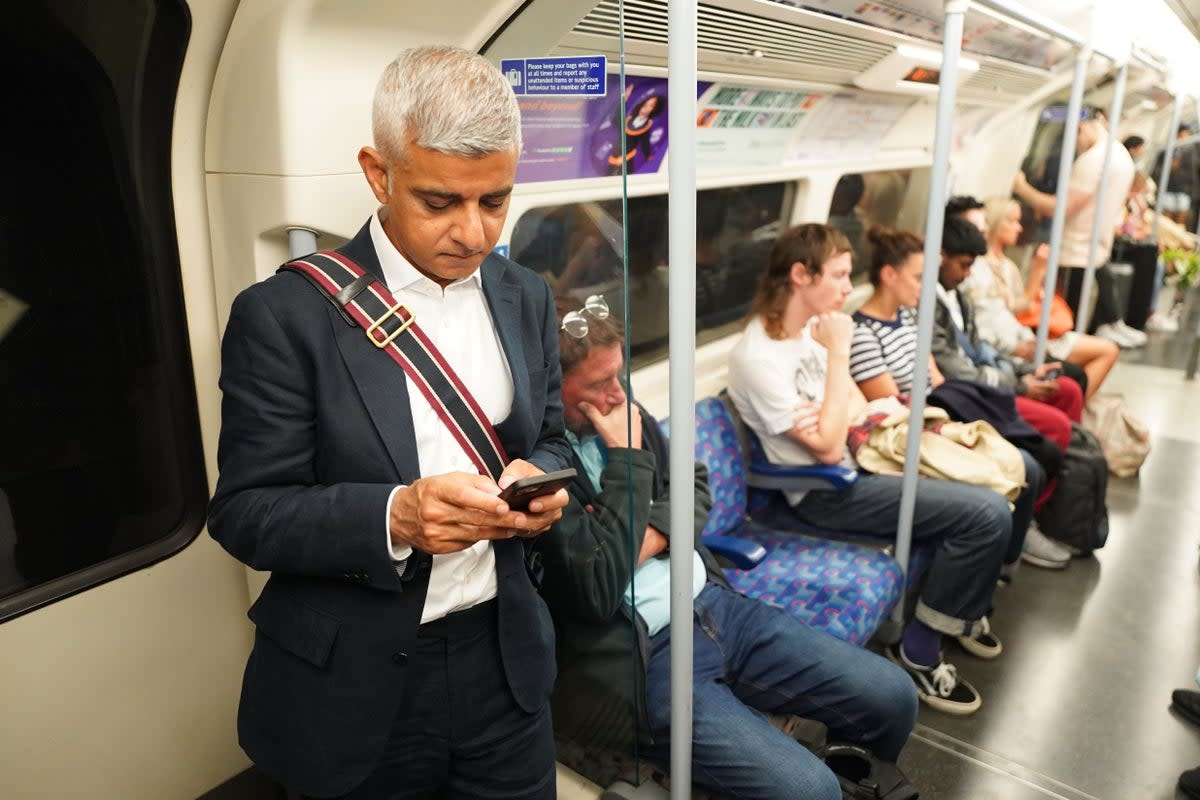Uncertainty hangs over Sadiq Khan's cheap Friday fares trial as TfL and train companies try to agree deal

City Hall has insisted it remains “very optimistic” that a trial of cheaper Tube and train fares on Fridays will be able to go ahead.
Mayor Sadiq Khan announced on Sunday that he wanted to scrap peak fares on Fridays for three months to encourage more people back to central London.
But private train companies operating services in the capital were only notified of the plan last Friday afternoon and say much work remains to be done before the trial – which will also enable cheaper fares on their services - can go ahead.
The Standard has learned that multiple issues would have to be resolved before cheaper Friday fares can be introduced.
These include calculating how much of the £24m set aside by Mr Khan for the scheme would go to the train companies in compensation for the loss of peak fares, and how much would go to Transport for London.
Another headache is establishing what would happen at stations outside London such as Reading, where passengers can use TfL’s Contactless card payment system to travel on the Elizabeth line.
Rail industry sources say they support moves to encourage more passengers – but face a challenge establishing how the initiative will work in practice.
In addition, Mr Khan's proposal has come at a time train firms are contending with a week of Aslef strikes and preparing for the Government’s 4.9 per cent increase in national rail fares from March 3, in addition to the mayor's own decision to freeze pay-as-you-go fares on the Tube and London buses.
One person with knowledge of the issues said: "It will be a challenge to get this implemented by March 8 as TOCs [train operating companies] were completely unsighted until the announcement, but it is not impossible if an agreement can be made quickly."
Passengers are able to use Oyster cards or Contactless bank cards to travel on mainline trains, such as those operated Thameslink, Southeastern, Southern and South Western Railway, within TfL’s fares zones system. This means they will also qualify for all-day off peak fares on Fridays, in addition to millions of Tube passengers.
Mr Khan wants the trial to start on March 8. But aides admit the date may have to be pushed back if it takes longer than hoped to finalise agreement with the Rail Delivery Group, the organisation that represents train firms.
A source close to Mr Khan said on Wednesday that the mayor’s team was “very optimistic” the trial would go ahead, saying it was more a matter of finalising logistics than overcoming objections in principle.
But Peter Fortune, a Conservative member of the London Assembly, said Mr Khan's policy was "unravelling".
He told BBC London: "Just 48 hours after his announcement, it's clear this pledge was an election gimmick that fails to stand up to scrutiny.
"The mayor has merely 'asked' TfL to look into the possibility of pausing off-peak fares on Friday and has yet to say how much money will be made available to train operators."
The complexity of the ticketing system is the biggest hurdle to getting the off-peak trial up and running, the Standard has been told.
TfL oversees the Oyster and Contactless network, including at stations beyond Greater London. But there are already anomalies, such as not being able to use an Oyster card on the Elizabeth line for journeys west of West Drayton, including those to and from Reading.
In addition, Southern already offers discounted fares on Mondays and Fridays while South Western Railway operates a loyalty scheme. Southeastern sells "flexi" season tickets.
A further complication is that Day Travelcards for rail travel into London will rise by 7.9 per cent from March as part of a deal struck between the Mayor, the DfT and the Rail Delivery Group to save them from the axe. It is not yet clear how this increase will impact on travel demand.
A spokesperson for Rail Delivery Group said: “We want rail to grow and will work with TfL, the DfT and other industry partners to find a solution that encourages more people onto trains and boosts local businesses.”
The Department for Transport said it did not have to sign off the mayor’s plan prior to it being introduced, despite being responsible for train companies’ fares income and costs under post-pandemic rail contracts.
However ministerial sources described the scheme as a “knee-jerk pre-election gimmick” that had not been properly thought through.
A DfT spokesperson said: “The Government has provided more than £6.5bn of support to TfL since 2020, it is for the Mayor of London to explain how his decisions are funded.”

 Yahoo News
Yahoo News 
